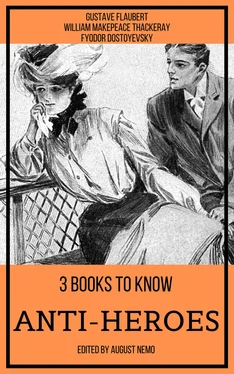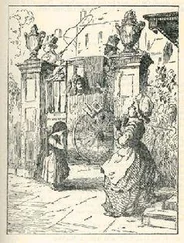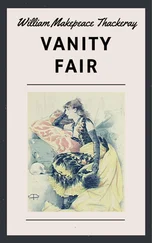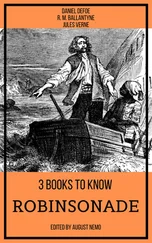But the alarm was given in the town, and what saved it was that the clock by which the Frenchman went was a quarter of an hour faster than any of the clocks in the town. The generale was beat, the troops called to arms, and thus the men who were to have attacked the other guard-houses, were obliged to fall into the ranks, and their project was defeated. This, however, likewise rendered the discovery of the conspirators impossible, for no man could betray his comrade, nor, of course, would he criminate himself.
Cavalry was sent in pursuit of the Frenchman and his thirty fugitives, who were, by this time, far on their way to the Bohemian frontier. When the horse came up with them, they turned, received them with a volley and the bayonet, and drove them back. The Austrians were out at the barriers, looking eagerly on at the conflict. The women, who were on the look-out too, brought more ammunition to these intrepid deserters, and they engaged and drove back the dragoons several times. But in these gallant and fruitless combats much time was lost, and a battalion presently came up, and surrounded the brave thirty; when the fate of the poor fellows was decided. They fought with the fury of despair: not one of them asked for quarter. When their ammunition failed, they fought with the steel, and were shot down or bayoneted where they stood. The Frenchman was the very last man who was hit. He received a bullet in the thigh, and fell, and in this state was overpowered, killing the officer who first advanced to seize him.
He and the very few of his comrades who survived were carried back to Neiss, and immediately, as the ringleader, he was brought before a council of war. He refused all interrogations which were made as to his real name and family. ‘What matters who I am?’ said he; ‘you have me and will shoot me. My name would not save me were it ever so famous.’ In the same way he declined to make a single discovery regarding the plot. ‘It was all my doing,’ he said; ‘each man engaged in it only knew me, and is ignorant of every one of his comrades. The secret is mine alone, and the secret shall die with me.’ When the officers asked him what was the reason which induced him to meditate a crime so horrible?—‘It was your infernal brutality and tyranny,’ he said. ‘You are all butchers, ruffians, tigers, and you owe it to the cowardice of your men that you were not murdered long ago.’
At this his captain burst into the most furious exclamations against the wounded man, and rushing up to him, struck him a blow with his fist. But Le Blondin, wounded as he was, as quick as thought seized the bayonet of one of the soldiers who supported him, and plunged it into the officer’s breast. ‘Scoundrel and monster,’ said he, ‘I shall have the consolation of sending you out of the world before I die.’ He was shot that day. He offered to write to the King, if the officers would agree to let his letter go sealed into the hands of the postmaster; but they feared, no doubt, that something might be said to inculpate themselves, and refused him the permission. At the next review Frederick treated them, it is said, with great severity, and rebuked them for not having granted the Frenchman his request. However, it was the King’s interest to conceal the matter, and so it was, as I have said before, hushed up—so well hushed up, that a hundred thousand soldiers in the army knew it; and many’s the one of us that has drunk to the Frenchman’s memory over our wine, as a martyr for the cause of the soldier. I shall have, doubtless, some readers who will cry out at this, that I am encouraging insubordination and advocating murder. If these men had served as privates in the Prussian army from 1760 to 1765, they would not be so apt to take objection. This man destroyed two sentinels to get his liberty; how many hundreds of thousands of his own and the Austrian people did King Frederick kill because he took a fancy to Silesia? It was the accursed tyranny of the system that sharpened the axe which brained the two sentinels of Neiss: and so let officers take warning, and think twice ere they visit poor fellows with the cane.
I could tell many more stories about the army; but as, from having been a soldier myself, all my sympathies are in the ranks, no doubt my tales would be pronounced to be of an immoral tendency, and I had best, therefore, be brief. Fancy my surprise while in this depot, when one day a well-known voice saluted my ear, and I heard a meagre young gentleman, who was brought in by a couple of troopers and received a few cuts across the shoulders from one of them, say in the best English, ‘You infernal WASCAL, I’ll be wevenged for this. I’ll WITE to my ambassador, as sure as my name’s Fakenham of Fakenham.’ I burst out laughing at this: it was my old acquaintance in MY corporal’s coat. Lischen had sworn stoutly, that he was really and truly the private, and the poor fellow had been drafted off, and was to be made one of us. But I bear no malice, and having made the whole room roar with the story of the way in which I had tricked the poor lad, I gave him a piece of advice, which procured him his liberty. ‘Go to the inspecting officer,’ said I; ‘if they once get you into Prussia it is all over with you, and they will never give you up. Go now to the commandant of the depot, promise him a hundred—five hundred guineas to set you free; say that the crimping captain has your papers and portfolio’ (this was true); ‘above all, show him that you have the means of paying him the promised money, and I will warrant you are set free.’ He did as I advised, and when we were put on the march Mr. Fakenham found means to be allowed to go into hospital, and while in hospital the matter was arranged as I had recommended. He had nearly, however, missed his freedom by his own stinginess in bargaining for it, and never showed the least gratitude towards me his benefactor.
I am not going to give any romantic narrative of the Seven Years’ War. At the close of it, the Prussian army, so renowned for its disciplined valour, was officered and under-officered by native Prussians, it is true; but was composed for the most part of men hired or stolen, like myself, from almost every nation in Europe. The deserting to and fro was prodigious. In my regiment (Bulow’s) alone before the war, there had been no less than 600 Frenchmen, and as they marched out of Berlin for the campaign, one of the fellows had an old fiddle on which he was flaying a French tune, and his comrades danced almost, rather than walked, after him, singing, ‘Nous allons en France.’ Two years after, when they returned to Berlin, there were only six of these men left; the rest had fled or were killed in action. The life the private soldier led was a frightful one to any but men of iron courage and endurance. There was a corporal to every three men, marching behind them, and pitilessly using the cane; so much so that it used to be said that in action there was a front rank of privates and a second rank of sergeants and corporals to drive them on. Many men would give way to the most frightful acts of despair under these incessant persecutions and tortures; and amongst several regiments of the army a horrible practice had sprung up, which for some time caused the greatest alarm to the Government. This was a strange frightful custom of CHILD-MURDER. The men used to say that life was unbearable, that suicide was a crime; in order to avert which, and to finish with the intolerable misery of their position, the best plan was to kill a young child, which was innocent, and therefore secure of heaven, and then to deliver themselves up as guilty of the murder. The King himself—the hero, sage, and philosopher, the prince who had always liberality on his lips and who affected a horror of capital punishments—was frightened at this dreadful protest, on the part of the wretches whom he had kidnapped, against his monstrous tyranny; but his only means of remedying the evil was strictly to forbid that such criminals should be attended by any ecclesiastic whatever, and denied all religious consolation.
Читать дальше












